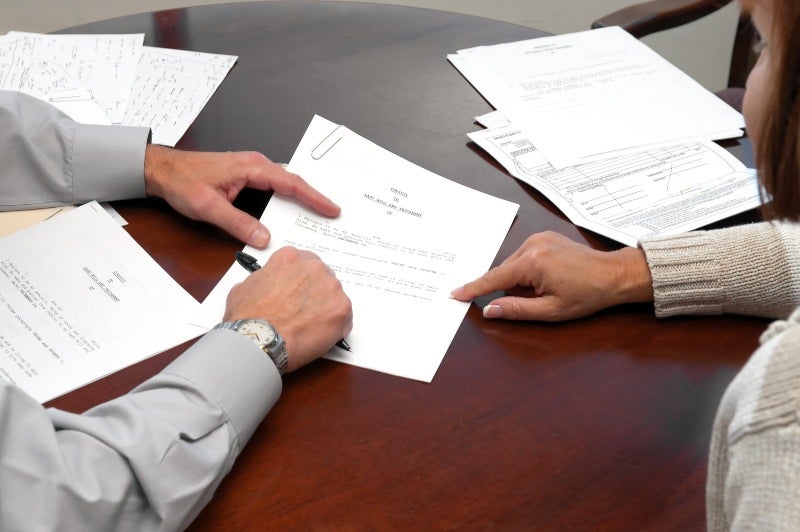-
Will vs. Living Trust vs. Living Will—What’s the Difference?
What is a Will?
A will outlines how you wish your assets and affairs to be handled after your death. It specifies who will receive your property, who will care for any minor children, and who will be responsible for executing your wishes. A will only takes effect after you pass away and must go through the probate process, where the court supervises the distribution of your estate. Wills are publicly available records, meaning anyone can look up the information they contain.

What is a Living Trust?
A living trust, or revocable living trust, is a legal arrangement where a trustee holds and manages your assets during your lifetime. Unlike a will, a living trust takes effect immediately upon creation. You can manage and benefit from these assets while you’re alive, and upon your incapacitation or death, they transfer to your beneficiaries according to your instructions without going through probate. This key benefit of a living trust speeds up the process, costs less, and provides privacy for your family.
What is a Living Will?
A living will is very different from a traditional will. Also known as an advance health care directive, this document outlines your wishes regarding medical treatment if you become incapacitated. It’s focused on your health care preferences rather than the distribution of your assets, covering decisions such as whether you want life-sustaining treatments, resuscitation, or pain management in certain medical situations.
Key Differences Between a Will, Living Trust, and Living Will
Purpose:
- A will manages asset distribution and guardianship after death.
- A living trust manages assets during life and after death.
- A living will directs medical care preferences when incapacitated.
Activation:
- A will becomes effective upon death.
- A living trust is effective immediately upon creation.
- A living will is effective when you’re unable to communicate your medical preferences.
Probate:
- A will is subject to probate.
- A living trust avoids probate.
- A living will is not related to probate or asset distribution.
Flexibility:
- A will can be updated any time before death.
- A living trust can be altered or revoked during your lifetime.
- A living will can be updated as long as you’re competent.
Choosing the Right Option for Your Needs
Selecting between a will, a living trust, and a living will depends on your unique circumstances and goals. Here are some considerations to help you decide:
- If you want a straightforward way to outline your final wishes and appoint guardians for your children, a will might be the best choice.
- If you wish to avoid probate, ensure seamless asset management, and maintain privacy, a living trust could be more suitable.
- If you want to ensure your healthcare preferences are followed when you can’t communicate them, a living will is a must.
Dying Without a Will or Living Trust
If you die without a will, known as dying “intestate,” your loved ones may face unintended complications. State intestacy laws will dictate how your assets are distributed, usually to the closest family members, but the specifics vary by state. Without a will, there is no named executor, so the court will appoint an administrator to manage the distribution of your assets. This process can be lengthy and stressful for your family, possibly causing disputes and delays in settling your estate.
Benefits of Professional Legal Advice
Creating the most advantageous estate plan is complicated. Having a knowledgeable attorney makes the process smoother and more effective. Professional legal advice provides customized solutions that reflect your specific needs and goals. You’ll receive expert guidance in navigating the legal requirements and potential pitfalls of estate planning for peace of mind that your documents are correctly prepared and legally enforceable.
Contact Bakerink, McCusker & Belden Today
You don’t need to be rich and famous to benefit from a will, a living trust, or a living will. Even if you are of modest means, you should create an estate plan if you have specific wishes about your end-of-life decisions, asset distribution, and child guardianship.
Bakerink, McCusker & Belden would be honored to help you craft or update your estate plan to meet your wishes. We have over 35 years of legal experience to guide you through your estate planning needs. Whether you need a will, a living trust, or a living will, our experienced attorneys are here to provide the legal guidance you deserve. Contact us today for a free, no-obligation consultation in Tracy, CA. We’ll help you plan for the future with confidence.
-
How Can I Amend My Will?
There may come a time when you need to amend your last will and testament. Perhaps you would like to leave inheritances to the newest generation of family members, or you need to eliminate someone from the will after a divorce. To make legally recognized amendments to your will , visit a lawyer serving Tracy or Manteca.
You can also watch this video for a general overview. It explains that you can either have a completely new will drafted or you can attach a codicil to the original will. A codicil amends specific parts of the will. You must sign the codicil in the presence of two witnesses in order for it to be legally valid. If the instructions in the codicil contradict those in the will, the codicil’s instructions will be carried out instead of the will.
-
Estate Planning Terminology Every Adult Should Be Familiar
Estate law involves complex nuances of language, and the terminology can be baffling to non-lawyers. You can always count on a will lawyer near Tracy or Manteca to fully explain anything that isn’t clear to you. However, it’s still advisable for all adults to have a basic understanding of the most common estate planning terms.

Last Will and Testament
Your will dictates how, after satisfying debts, your remaining assets in your estate will be distributed to your heirs. Heirs are also called beneficiaries. You can use your will to distribute specific pieces of property if you wish, or to provide for your pets in the event that they outlive you. If you have any minor children, you should use your will to designate a guardian for them.
Guardian
A guardian is someone whom you trust to raise your minor children in the event that you die before they reach the age of majority.
Executor
The executor of your will is the person who will be responsible for seeing that its terms are carried out. Even when the executor works with a lawyer, he or she will have many complex responsibilities. Before designating an executor, you should ask that person if he or she is willing to take on these responsibilities.
Trust
A trust is a document that is legally binding. You can transfer assets into the trust during your lifetime. The trust manages the assets, and after your death, the trust distributes the assets to your beneficiaries.
Trustee
A trustee is a person whom you’ve designated to manage the trust. A trustee might also be a corporate entity instead of a single person. Trustees are responsible for administering and distributing the trust in accordance with the instructions in the trust document.
Probate
Probate is a legal process. It begins when the executor of a will files the will with the probate court in order to validate it. Validating a will means to prove that it’s legally valid. Probate involves paying the decedent’s debts and distributing the remaining assets.
-
Can You Contest a Will?
Under certain circumstances, it’s possible to challenge the validity of a will . If you’re thinking about drafting a new will, talk to a lawyer in Tracy or Manteca about reducing the risk that your will is going to be contested. An estate planning attorney can also assist beneficiaries who believe that a deceased person’s will is invalid.
For more information about contesting these documents, watch this quick video. It explains the four primary grounds for contesting a will. They include the assertion that the deceased was legally incompetent or was acting under duress. A will may also be declared invalid if there is a valid will drafted on a later date, or if the will was not executed properly.
Do not risk making a mistake and being held liable during the will process. Contact our firm today if you would like to schedule a free consultation for Trust and Will attorney.
-
Dealing with Sentimental Items in Your Will
When most people think of wills and estate planning, they think of money and real estate, but in reality, some of the most contested items may be things of sentimental value. Your will lawyer in Tracy can help you decide the best way to give away sentimental items when you prepare your will.

For some people, it makes sense to give away sentimental items now, rather than allowing them to be distributed after your death. You get to see people enjoy the gifts, and you can prevent any squabbling between relatives. You may also find out that what people are sentimental about it not what you think. If your will lawyer suggests putting items in the will instead, he or she will encourage you to be as specific as possible. For instance, simply saying that all of your belongings go to your children leaves the door open for disputes over who gets which belongings. Your attorney may also help you create a framework for settling disputes, such as setting up a bidding system your heirs can use if more than one person is adamant about getting an item.
““
-
Finding the Right Executor for Your Will
The creation of wills is only one step in the estate planning process. When you consult an estate planning lawyer near Tracy or Manteca, you will be asked to designate an executor . The executor is the person who is charged with the task of identifying assets, satisfying liabilities, and distributing assets to beneficiaries in accordance with the will. Finding the right executor can be challenging because, as you’ll learn when you watch this video, executors have difficult tasks to manage that can take months or even years to complete.
Ideally, you should choose someone to manage your estate who has a background in finance or at least is comfortable handling financial matters. Choose someone who is reasonably intelligent and detail-oriented. The expert in this video also explains the surprising reason why it’s advisable to select an executor who has substantial personal assets.
““
-
What You Need to Know About Storing Your Will
 Once you go through the process of estate planning in Tracy and complete your will, you then have to decide how to store it. Many people overlook this part of preparing a will, but it is crucial. Without proper storage, your will runs the risk of being damaged, lost, stolen or even unfound by your beneficiaries. Here are some of the storage options you can consider for your will.
Once you go through the process of estate planning in Tracy and complete your will, you then have to decide how to store it. Many people overlook this part of preparing a will, but it is crucial. Without proper storage, your will runs the risk of being damaged, lost, stolen or even unfound by your beneficiaries. Here are some of the storage options you can consider for your will.Fireproof Safe
If you decide to store your will at home, then find some place with more protection than a standard file cabinet. A safe that is fireproof will protect your document in case of an incident in your home. A safe that is both fireproof and waterproof offers even more protection. Keep in mind that if you buy a standalone safe or even a fireproof lockbox that it could be easily stolen from your home. Having a safe that is built into your wall offers the best protection for storing your will at home. If you decide to keep your will at home, make sure your executor knows where to locate it in the event of your death.
Attorney’s Office
Some people choose to ask their attorneys to keep their original will documents. This solution is ideal if you know you will maintain a relationship with that attorney. Be sure your executor or your beneficiaries know which attorney is holding your will, particularly if you believe there is a chance you will not continue contact with the lawyer after your will is prepared. If you decide not to have your attorney keep the original draft of your will, ask that he or she keeps some copies, so that these are available should your original be lost.
Safety Deposit Box
Many people opt to keep their wills in safety deposit boxes, which are considered to be one of the most secure locations. Be sure to review the laws in your state for opening safety deposit boxes with your attorney. Most states require very specific documentation to open a box after someone’s death, so be sure your beneficiaries or executor will have the appropriate information to obtain the will.
RECENT POSTS
categories
- Uncategorized
- Personal Injury
- Estate Planning
- customer reviews
- Financial Planning
- Work Injury
- Tracy Lawyer
- Attorney
- Dog Bites
- Auto Accident
- Slip and Fall
- Car Accident
- Living Trusts
- Trust Administration
- Living Will
- Wrongful Death
- Probate
- advanced health care directive
- About Us
- Russian linguist
- Infographic
- Wills and Trusts
- Will
- Car Crash
- Executor
- Whiplash Injuries
- Estate Taxes
- Slip and Fall Injury
- Auto Accident Claims
- Intestate Succession
- Disinheritance
- Trust Administrators
- Cycle Accident
- Accident
